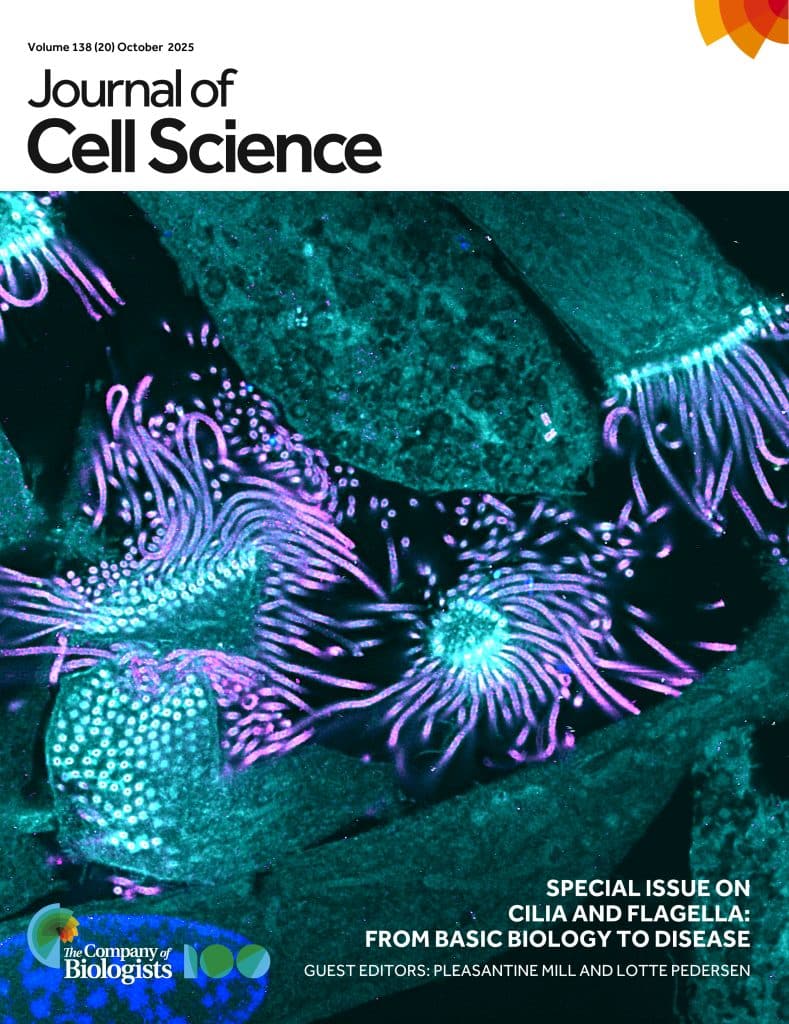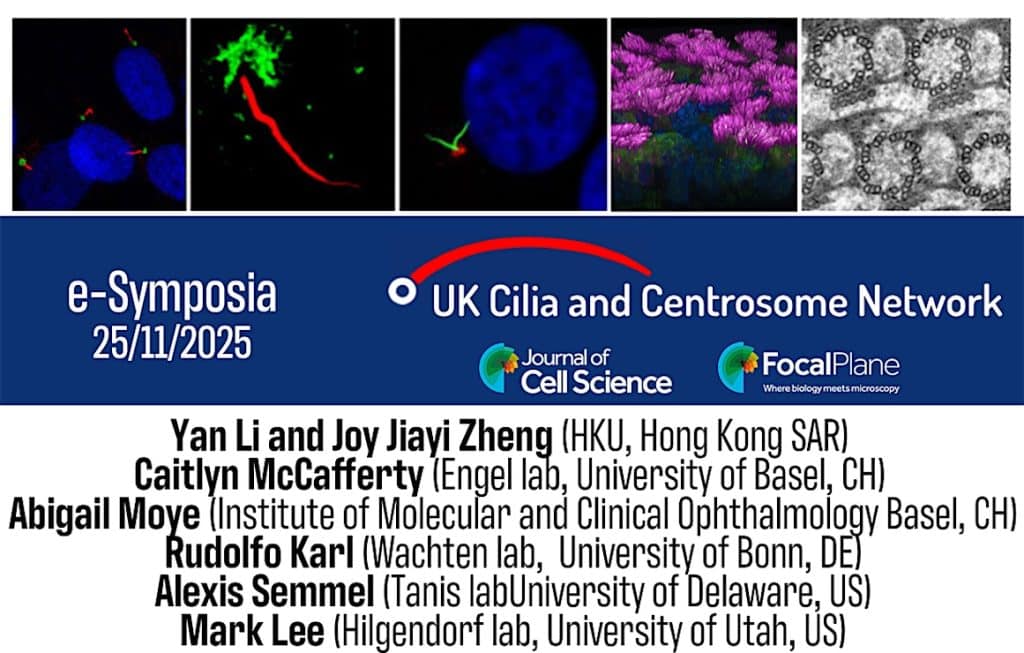JCS Special Issue – ‘Cilia and Flagella: from Basic Biology to Disease’
Posted by FocalPlane, on 10 November 2025
Journal of Cell Science’s Special Issue – Cilia and Flagella: from Basic Biology to Disease is now complete. This issue was guest edited by Pleasantine Mill and Lotte B. Pedersen. You can read their Editorial ‘Big lesson from small things – the JCS special issue on cilia and flagella’ here.

e-symposium
We are delighted that the special issue will be celebrated at the upcoming 53rd BSCB GenSoc UK Cilia and Centrosome Network e-symposium on Tuesday 25 November from 15:00-17:45 GMT . Pleasantine and Lotte have selected four papers from the issue that will presented alongside two additional talks showcasing breakthroughs in the field. Sign up for the symposium to hear talks from Abigail Moye, Rudolfo Karl, Alexis Semmel and Mark Lee, as well as Yan Li & Joy Jiayi Zheng and Caitlyn McCafferty.

Date: 25 November 2025 Time: 15:00 – 17:45
15:00 -15:05 Pleasantine Mill Opening remarks
15:05 -15:25 Yan Li and Joy Jiayi Zheng, He lab, Hong Kong University, Hong Kong SAR.
Modeling pulmonary ciliopathy using multi-lineage human airway organoids
15:25- 15:45 Caitlyn McCafferty, Engel lab, Biozentrum, University of Basel, CH.
The molecular architecture of the ciliary base in mammalian multiciliated cells
15:45 -16:05 Abigail Moye, Rivolta lab, Institute of Molecular and Clinical Ophthalmology Basel, CH.
Sub-ciliary localization of CEP290 and effects of its loss in mouse photoreceptors
16:05 -16:25 Rudolfo Karl, Wachten lab, Institute for Innate Immunity, University of Bonn, Bonn, DE.
Renal tissue-resident macrophages promote cystogenesis in early polycystic kidney disease
16:25 -16:45 Alexis Semmel, Tanis lab, University of Delaware, Newark, US.
Phosphatidylinositol 4,5-bisphosphate Impacts Extracellular Vesicle Shedding from C. elegans Ciliated Sensory Neurons
16:45 -17:05 Mark Lee, Hilgendorf lab, Department of Biochemistry, University of Utah, Salt Lake City, US.
Prostaglandin E2 inhibits adipogenesis through the cilia-dependent activation of ROCK2
Find out more about the UK Cilia and Centrosome Networks, including how you can get involved, via their website.


 (No Ratings Yet)
(No Ratings Yet)